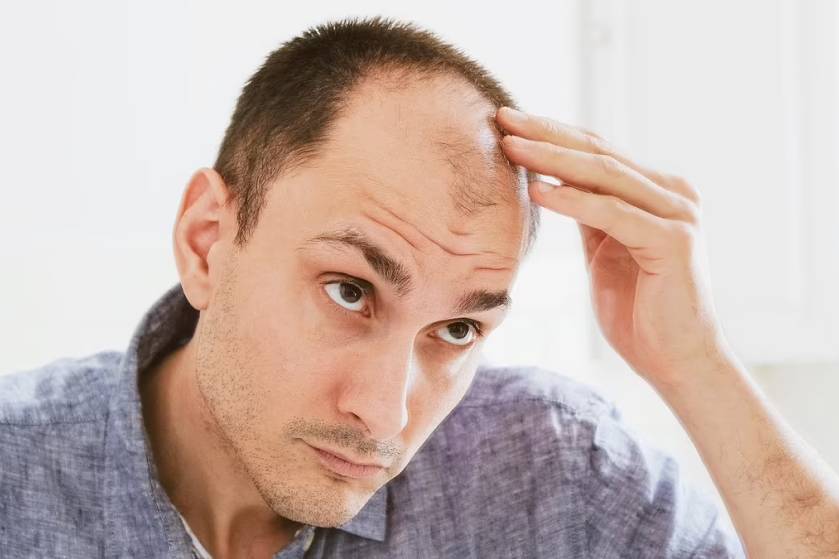


Hair loss is a concern for millions of men worldwide, affecting their looks, confidence, and self-esteem, and ultimately the quality of life. While it’s natural to lose some hair daily, significant or sudden loss often indicates an underlying issue. Interestingly, the causes and patterns of hair loss vary depending on age. For instance, men in their 20s might experience hair loss primarily due to genetics or lifestyle choices, while those in their 40s face more age-related issues. Understanding these age-specific causes can empower men to take action and explore the right treatments to prevent further hair loss.
At RQC Hair Transplant Clinic, we help men address hair loss with personalized treatments suited to their unique needs. This article covers the main causes of hair loss in men across age groups, along with effective prevention and treatment strategies to restore confidence and maintain healthy hair.
Hair loss, medically known as alopecia, can arise from multiple factors that range from genetic to environmental. Here’s an overview of the most common causes that affect men across different age groups:
Each of these factors contributes to hair fall in men differently depending on a man’s age, lifestyle, and genetics, but identifying the root cause is key to selecting an effective treatment.
In their 20s, many men first notice early signs of hair thinning, often due to genetic predisposition or stress.
Primary Causes:
Genetics: Androgenetic alopecia can start in the late teens or early 20s. If a man’s father or grandfather experienced hair loss, he’s more likely to experience it too.
Lifestyle Factors: High stress from studies, work, or personal life, poor diet, and irregular sleep patterns all contribute to hair loss at this age.
Excessive Styling: Young men often experiment with hair products and heat styling, which can damage hair over time.
Prevention Tips:
Focus on Nutrition: A balanced diet rich in vitamins and minerals strengthens hair.
Reduce Stress: Regular exercise, meditation, and sufficient sleep can mitigate stress-related hair loss.
Gentle Hair Care: Limit the use of heat styling and choose gentle, sulfate-free shampoos.
In their 30s, hair loss becomes more prominent for many men, especially if they have a family history of baldness. Hormonal changes and lifestyle choices continue to play significant roles.
In the 40s and older, hair loss is often more advanced, and age-related factors come into play.
When it comes to treating hair loss, it’s essential to choose treatments that align with the causes and age group. Here are some options for best treatment for hair Fall in men:
Prevention is as important as treatment in maintaining hair health. Here are some tips that men across all ages can use:
Not all hair loss is reversible, but early intervention can make a difference. Here are signs that it’s time to consult a specialist:
For professional advice, RQC Hair Transplant Clinic offers comprehensive evaluations to determine the cause of hair loss and suggest the best course of action, whether it's non-surgical or surgical treatment.
Hair loss in male can be a daunting experience, but understanding its causes according to age and taking the right steps can make a significant difference. From lifestyle adjustments to advanced treatments, men have options to manage and even reverse hair loss effectively. If you're experiencing hair loss and want a tailored approach, consider reaching out to RQC Hair Transplant Clinic for expert guidance and solutions that work.
